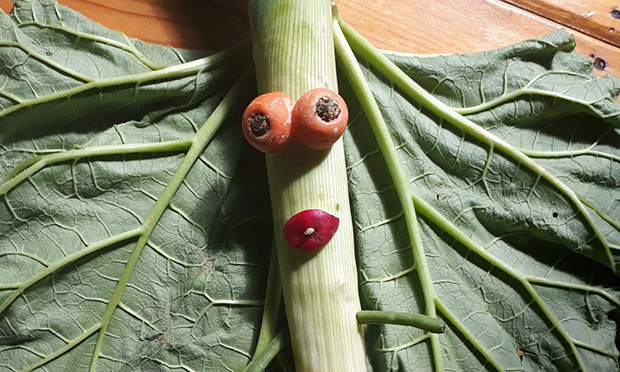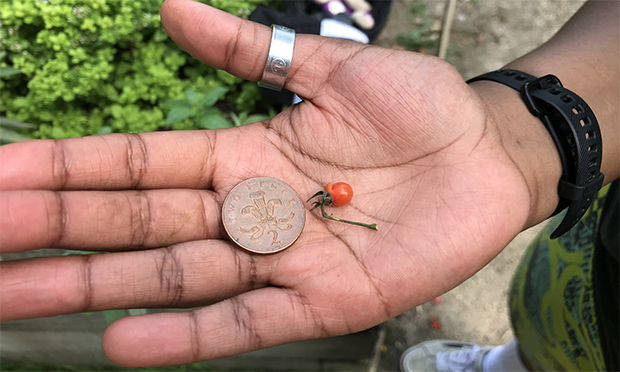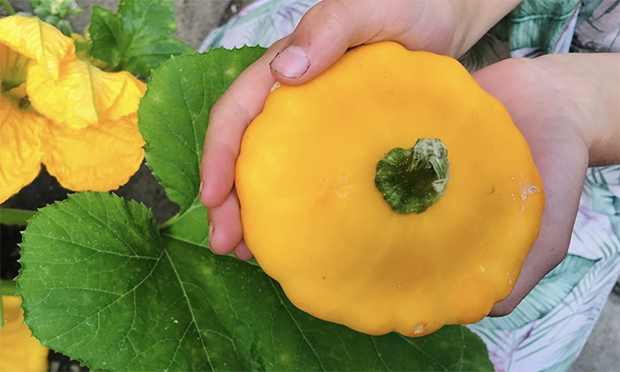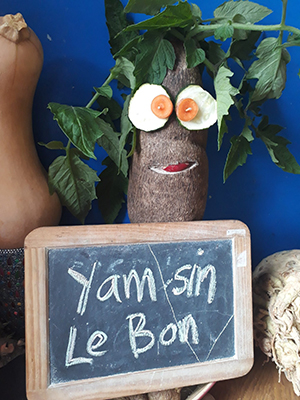The Citizen Gardener: ‘Even looking at a picture of a river or a wood can improve your mood’

Photograph: courtesy Kate Poland
If one thing has clearly come out of all this, it’s been that people have discovered, or rediscovered the power of nature to make them feel better.
The mental health charity, Mind, tells us how being in nature reduces stress and mild depression (bit.ly/2SaTqs5).
Those of us who have stood in a wood or paddled in a stream just know how well it works. But not everyone has that basic access to nature, and many just don’t feel welcome or suffer outright racism.
I was recently privileged to be part of a conversation with Tayshan Hayden-Smith, a footballer and gardener (not an association you commonly hear). He lives near Grenfell Tower and started gardening as a way of therapy, and has since blazed a trail for young Black people to get into gardening (grow2know.org.uk).
Tayshan is passionate about the need for horticulture to be on the school curriculum, and for gardening to be ‘normalised’ for Black and minority ethnic people.
You can listen to his inspiring and enlightening conversation with Princess Siwela on our You Tube channel (bit.ly/3iemPMD). It has already changed the way I see how our green spaces are managed and how, even in the apparently gentle world of gardening, a kind of exclusivity can prevail.

Photograph: courtesy Kate Poland
There has been a bit of a revolution going on, though, which might change things. Groups like Black Girls Hike (facebook.com/bghmcr), the brilliant Wild in the City (wildinthecity.org.uk), and Flock Together (instagram.com/flocktogether.world) are claiming their space by being in it.
Whoever you are, if you can’t get outdoors or don’t have space, you can bring nature into your home.
Even looking at a picture of a river or wood can improve your mood, let alone watching Countryfile or Gardeners’ World. Indoor plants can also help with air quality.
According to Transport for London, more than two million Londoners, including 400,000 children, live in areas which exceed current air pollution limits.
This is mostly caused by motor vehicles but we also bring plenty of pollutants into our own homes – cleaning and decorating products, furnishings which produce volatile organic compounds.
The consumer magazine Which says “many of the things we do to make our homes more comfortable, such as decorating, burning candles and using air fresheners, can increase our personal exposure to pollutants, and contribute significantly to our collective national emissions […] This isn’t something we should ignore”.

Photograph: courtesy Kate Poland
Plants can’t solve everything but they can improve most things, and they have been shown to reduce stress and even increase productivity and diminish pain.
The Royal Horticultural Society (RHS) has done some research into how houseplants can mitigate pollutants and just generally make us feel better (bit.ly/30hwDzn).
The humble but indestructible spider plant and ivy can clean the air of formaldehyde and benzene, and Sansevieria trifasciata can also help. Fern arum, too, is in this category, and, as the RHS says, is “tolerant of neglect”, which is a bonus.
But even if their effect is minimal, just tending a plant can help distract and calm you.
Outside, plants provide a barrier to pollution but many actually trap particulates – lady’s mantle, yarrow, wallflower, heuchera, salvia, yew, pine and cranesbill geranium, to name a handful, help with this.
Silver birch can accumulate heavy metals while hawthorn is high on the list of plants that help improve air quality. There are many more but, in short, just grow more.

Photograph: courtesy Kate Poland
We at Cordwainers Grow are running a series of growing sessions with the council on four estates over the autumn and winter for families who have never grown anything before. We’ll be concentrating on easy things to grow indoors, so contact Hackney Housing’s resident participation team if you’d like us to come to your place.
And if you want a different kind of distraction, I can recommend snail racing. As part of our annual veg and produce show, we decided (I don’t know why) to put on a championship. It’s actually quite compelling. It was a real life 3D element of a virtual veg and produce show we put on with Capital Growth.
I won’t spoil it by telling you the winners, but be prepared for Speedy McGee to surprise you (bit.ly/33hfpEd).
Kate Poland is an award-winning community gardener and the UK’s first ever postcode gardener in E5. For more, head to cordwainersgrow.org.uk and friendsoftheearth.uk
